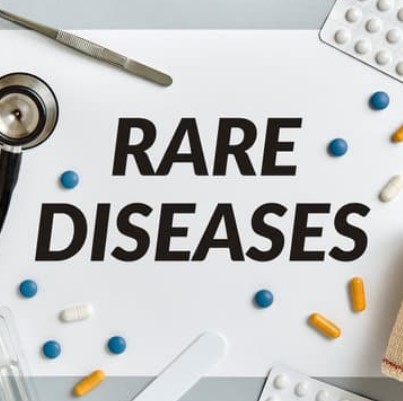
World Rare Disease Day has been celebrated on the last day of February since 2008.
The aim of the commemoration is to raise awareness and to help all people suffering from a so-called rare disease to receive timely diagnosis and treatment and, in the long run, to ensure a better life.
What are rare diseases?
Rare diseases are pathologies or disorders that affect a small part of the population and usually have a genetic component. They are also known as orphan diseases.
The diseases have a particular set of symptoms, and it is very difficult to diagnose the true cause. These disorders or alterations presented by patients have to be evaluated by a specialist, depending on each case.
Today, about 8% of the world's population suffers from them. Translated into numbers, this corresponds to approximately 350 million people affected.
Specific characteristics
- Many of them are of genetic origin with a risk of transmission to offspring.
- They are chronic and usually degenerative.
- They are serious and cause some type of disability.
- Their manifestation is early, although there are pathologies that manifest themselves in adulthood.
- As they are little known processes, they take time to be diagnosed and their treatment is delayed.
- They are of high aetiological and prognostic complexity.
- Their treatment requires a multidisciplinary approach.
Rare diseases are those that affect a limited number of people out of the general population, less than one in 2,000. However, most of these diseases are even rarer, affecting one in 100,000 people. It is estimated that today there are between 5,000 and 8,000 different rare diseases, affecting between 6% and 8% of the population in total. We have selected 9 of them:
- Fragile X syndrome
- Moebius syndrome
- Amyotrophic Lateral Sclerosis
- Prader Willi Syndrome
- Schönlein-Henoch purpura
- Hutchinson-Gilford progeria
- Marfan syndrome
- Congenital Insensitivity to Pain
- Gilles de la Tourette's syndrome
How to celebrate World Rare Disease Day?
There are many contributions that we can make from our community, school or workplace to celebrate World Rare Disease Day. One way to contribute is to support patients and families going through this situation, either by making a donation, or simply documenting the issue by reading about it or attending lectures or symposia.
We also invite you to share your experiences on social media using the hashtag #WorldRareDiseasesDay #RareDiseases #RareDiseaseDay
No hay comentarios:
Publicar un comentario